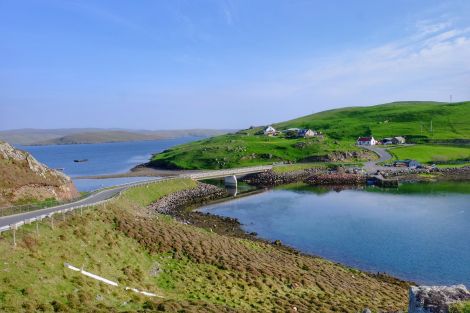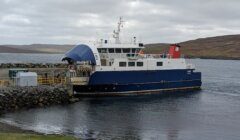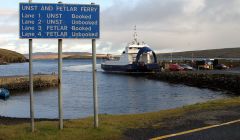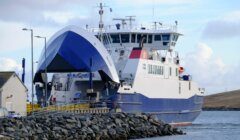Council / Council working to change government’s mindset on fixed links
THE SIC has a massive fight on its hands to persuade Scottish ministers of their moral duty to provide fixed links in island communities, according to the council’s head of transport planning Michael Craigie.
Legally, in Scotland, it is the duty of local authorities to provide transport links. In addition, the methodology and rule book for approving national transport projects is heavily skewed against rural and islands areas.
Craigie was updating community councillors at a meeting of the Association of Shetland Community Councils (ASCC) on Tuesday night.
He said a first meeting of a new fixed links group earlier this month, bringing together representatives from Scottish island local authorities, was a first step in the right direction, but he warned that it had taken island councils seven years to finally get the government to accept the case for fair ferry funding.
Craigie was closely questioned by Whalsay community councillor William Polson, a fierce critic of the council’s performance in providing the island with future transport solutions.
Polson said that previous calculations showing that over a 60 year timespan it would be cheaper to run ferries than building tunnels was based on what he called false information.
Craigie responded that the council had no choice but to follow the government’s rule book (the so-called Green Book) when making the technical and financial case for infrastructure projects. And that is, he said, “the core of the problem”.
Lerwick community councillor, and former council leader, Gary Robinson, described the approach as “insensitive” towards island and rural needs.
Craigie said it is not that the council does not want to build fixed links. The job at hand right now, however, was to overcome existing “bureaucratic barriers” and to get government to grasp the benefits of such investments for island areas.
Become a member of Shetland News
“Government makes the point to us again and again that it is our responsibility in the islands to provide our own transport links as they are legally ours,” he said.
“So we have a lot of work to do in making the case to them to the point where they take it up as they did with the fair funding for the ferries. We spent six/seven years building the case for that (…) until we broke through and succeeded.
“We got that same journey with fixed links. It’s not just about the technical side of things, it’s also about hearts and minds, and the understanding being raised at different levels for them [the government] to start working on how to adjust design standards, how to get a different approach to procurement, (…) all of which add millions and millions of pounds to the cost, which are then picked up in the appraisal process, and that’s why they fail every time because, on paper, they are more expensive than continuing with the ferries.”
Become a member of Shetland News
Shetland News is asking its readers to consider paying for membership to get additional perks:
- Removal of third-party ads;
- Bookmark posts to read later;
- Exclusive curated weekly newsletter;
- Hide membership messages;
- Comments open for discussion.
If you appreciate what we do and feel strongly about impartial local journalism, then please become a member of Shetland News by either making a single payment, or setting up a monthly, quarterly or yearly subscription.















































































